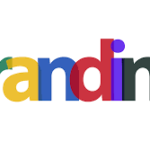[ad_1]
The limits of free speech have become increasingly relevant in the digital age, as the internet provides a platform for almost anyone to express their opinions and views. While free speech is a fundamental right, there are limits to what can be said or expressed, especially when it comes to online speech.
The rise of social media has created new challenges when it comes to free speech. Social media platforms such as Facebook, Twitter and YouTube are used by millions of people every day, and their reach and influence far exceeds that of traditional media. These online platforms are often used to spread hate speech, incite violence or promote extremist ideologies.
Governments around the world are grappling with how to regulate this new form of speech. While the right to free speech is enshrined in many national constitutions, there are often limits to what can be said or expressed, especially if it involves hate speech, incitement to violence or the promotion of extremist and terrorist ideologies.
One of the biggest challenges facing lawmakers is how to regulate social media platforms. While these platforms are private companies, they function as public spaces, and have become essential to modern life. Governments are struggling to find the right balance between protecting free speech and regulating harmful content.
It is clear that there are limits to what can be said or expressed online. Hate speech, incitement to violence or promoting extremist ideologies are not protected under the right to free speech. But where do we draw the line when it comes to regulating online speech?
Some argue that it is up to the social media platforms themselves to regulate the content on their sites. Others argue that governments need to step in and regulate online speech, enforcing penalties and fines for those who cross the line.
Regardless of who is responsible for regulation, it is clear that limits need to be put in place to protect the safety and well-being of society as a whole. The rise of hate speech, extremism and the spread of misinformation online has the potential to incite violence and cause harm, and governments and social media platforms need to take action to prevent this from happening.
In conclusion, free speech is a fundamental right, but it is not unlimited. In the digital age, we need to find a balance between protecting free speech and regulating harmful content online. It is up to governments, social media platforms and individuals to work together to ensure that the internet remains a safe and inclusive space for all.
[ad_2]









